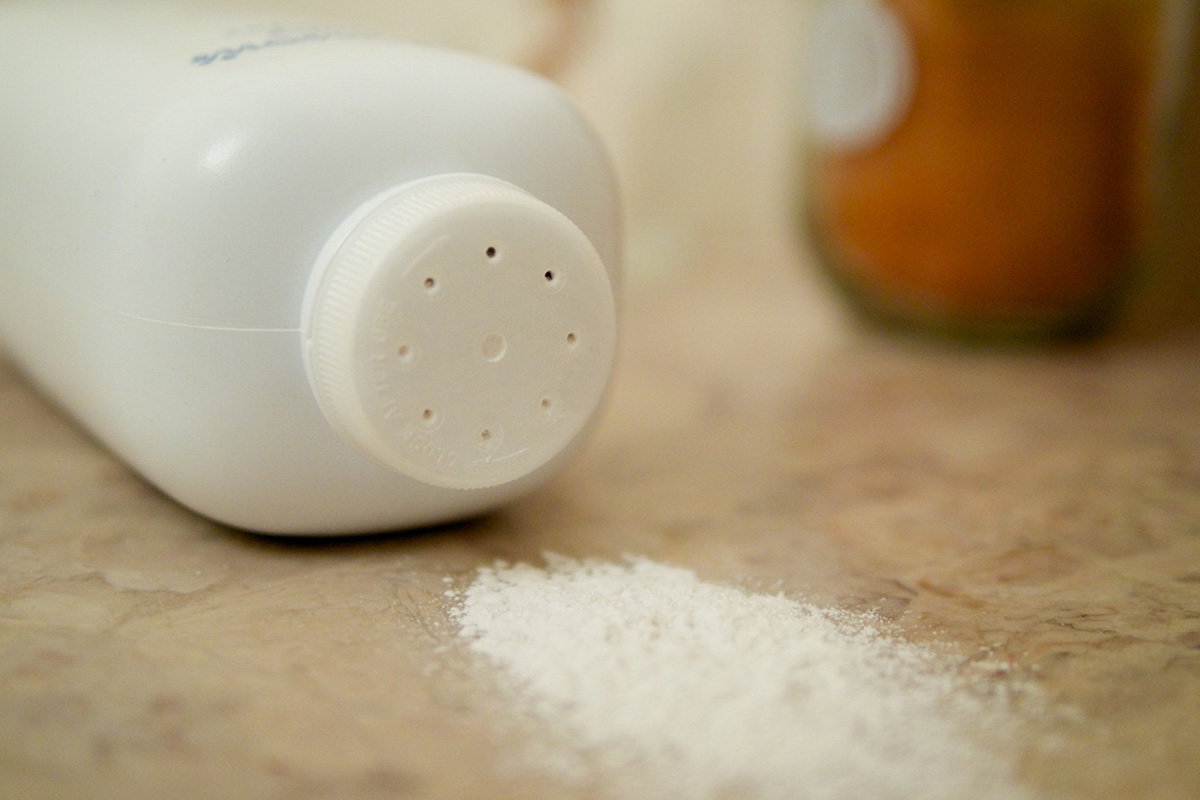Jacqueline Fox passed away in the fall of 2015, but her voice came alive a few months later in a Missouri courtroom.
Prior to her death, Mrs. Fox gave recorded Testimony that for 35 years she had used Johnson & Johnson talcum powder products including their baby powder and their Shower to Shower body powder. Mrs. Fox, like millions of other women in the United States, used these products for feminine hygiene. In 2012, she was diagnosed with ovarian cancer that she believed was caused by decades of exposure to the powder. She had joined over 1,200 other women from all over the United States in suing Johnson & Johnson when they came down with ovarian cancer.

Mrs. Fox's case became the first in which monetary compensation was awarded. The court ordered the talcum powder manufacturer to pay her estate $72 million, of which $10 million was actual damages and $62 million was punitive damages. Although the amount of the award will probably be reduced when Johnson & Johnson appeals the decision, it is probably that more suits will be settled with damages awarded to women who used talcum powder and subsequently developed ovarian cancer.
What Did Johnson & Johnson Know About Talcum Powder That It Didn't Tell the Public?
One juror interviewed after the decision was announced explained that the reason the jury awarded huge punitive damages was that internal company memos indicated that Johnson & Johnson had know about the problem for years while doing nothing. Juror Jerome Kendrick, told the St. Louis Post-Dispatch that he was swayed by company memos presented at trial.
“They tried to cover up and influence the boards that regulate cosmetics,” he is quoted as telling the paper, adding “They could have at least put a warning label on the box but they didn’t. They did nothing.”
One memorandum from medical consultant retained by Johnson & Johnson compared ignoring the risks associated with “hygenic” use of talcum powder and ovarian cancer to denying the link between smoking cigarettes and cancer, or, as the consultant put it, “denying the obvious in the face of all evidence to the contrary,”
How Does Talcum Powder Cause Ovarian Cancer?
For about 20 years, scientists have been looking at the perineal use of talcum powder and ovarian cancer rates. "Perineal" refers to use of powder between the vagina and the anus. Scientists theorize that talcum powder can increase the risk of ovarian cancer through one or both of two mechanisms:
- It's possible that talcum powder travels up the cervix, uterus, and Fallopian tubes into the ovaries, where it causes repeated irritation that leads to cancer.
- It's also possible that talcum powder reduces the production anti-MUC1 antibodies, which fight ovarian cancer in its early stages. However, generally exposure to fine particles stimulates rather than inhibits the immune system.
READ Ovarian Cancer: Treatments, Drugs and Risks
Exposure to talcum powder is primarily associated with serous ovarian cancer. This is a kind of cancer that probably starts in the Fallopian tube and spreads into the ovary. Talcum powder is not associated with increased risk of other forms of the disease.
Should Women Who Have Used Talcum Powder For Feminine Hygiene Panic About Ovarian Cancer?
It's important to note that not absolutely every study of the relationship between talcum powder use and ovarian cancer finds a clear-cut relationship between the two. In one of the most recent studies, the "confidence interval," a range of correlations between talcum powder and cancer, finds that there is even a possibility that use of talcum powder reduces the risk of ovarian cancer, although the overall trend is for increasing risk of cancer. The data analysis really should be interpreted as "we're not sure" for that one study.
Why would studies of talcum powder and ovarian cancer not all get the same results. It turns out that researchers don't have a reliable way for finding out how much talcum powder women have used. The Nurses’ Health Study asked women how many times a week they used talcum powder for feminine hygiene. The Women's Health Initiative asked women how many years they had used the powder. Neither approach tells researchers how much powder was used, so the studies don't really reveal whether a little talcum powder is OK or whether it helps if women stop. Talcum powder seems to be one of ovarian cancer's causes, but that seems to be the limit of what can be stated with confidence.

What does all of this mean for women who have been using talcum powder for many years? Is it time to panic? Not really. Here is the data in perspective.
- Only about half of women ever use talcum powder for personal hygiene. Obviously, women who don't use the product are not at elevated risk.
- For the 52.6 percent of North American women who do use talcum powder, the increase in the risk of ovarian cancer is 36 percent. That doesn't mean that 36 percent of women who use talcum powder will get ovarian cancer. That means that instead of a 0.0012 percent risk of developing ovarian cancer in any given 12-month period, women who use talcum powder have approximately a 0.0016 percent chance of developing ovarian cancer in any given year. In other words, instead of approximately a 1 in 200 chance of developing the disease at some point during their adult lifetimes, they have about a 1 in 150 chance of developing ovarian cancer at some point during their adult lifetimes.
- Before 1980, talcum powder was often contaminated with asbestos. It is not contaminated with talcum powder now. Women who did not use talcum powder before 1980 may not be at as great a risk for cancer.
READ Ovarian Transplantation: Pioneer in Ovarian Transplant Gives Birth to Her Second Child
On the other hand, why not take simple measures to lower the risk of ovarian cancer even further. It is recommended that women:
- Avoid applying talcum powder to sanitary napkins and underwear.
- Avoid using talcum powder to "freshen" after bathing.
- Make sure that mineral cosmetics, which are OK for the face, not be applied in unusual places.
- Avoid the use of Chinese herbal medicines (usually formulas for "cooling") that include talcum powder.
Ovarian cancer is hard to detect and hard to treat. Anything that reduces the risk of this dread disease is a boon for women's health. Panic is not appropriate, however. Women should simply stop using talcum powder now.
- Houghton SC, Reeves KW, Hankinson SE, Crawford L, Lane D, Wactawski-Wende J, Thomson CA, Ockene JK, Sturgeon SR. Perineal powder use and risk of ovarian cancer. J Natl Cancer Inst. 2014 Sep 10.106(9). pii: dju208. doi: 10.1093/jnci/dju208. Print 2014 Sep. PMID: 25214560.
- Wentzensen N, Wacholder S. Talc use and ovarian cancer: epidemiology between a rock and a hard place. J Natl Cancer Inst. 2014 Sep 10. 106(9). pii: dju260. doi: 10.1093/jnci/dju260. No abstract available. PMID: 25214563.
- Photo courtesy of aukirk: www.flickr.com/photos/aukirk/12795957403/
- Photo courtesy of samgarmon: www.flickr.com/photos/samgarmon/3248812748/
- Photo courtesy of aukirk: www.flickr.com/photos/aukirk/12795957403/


Your thoughts on this